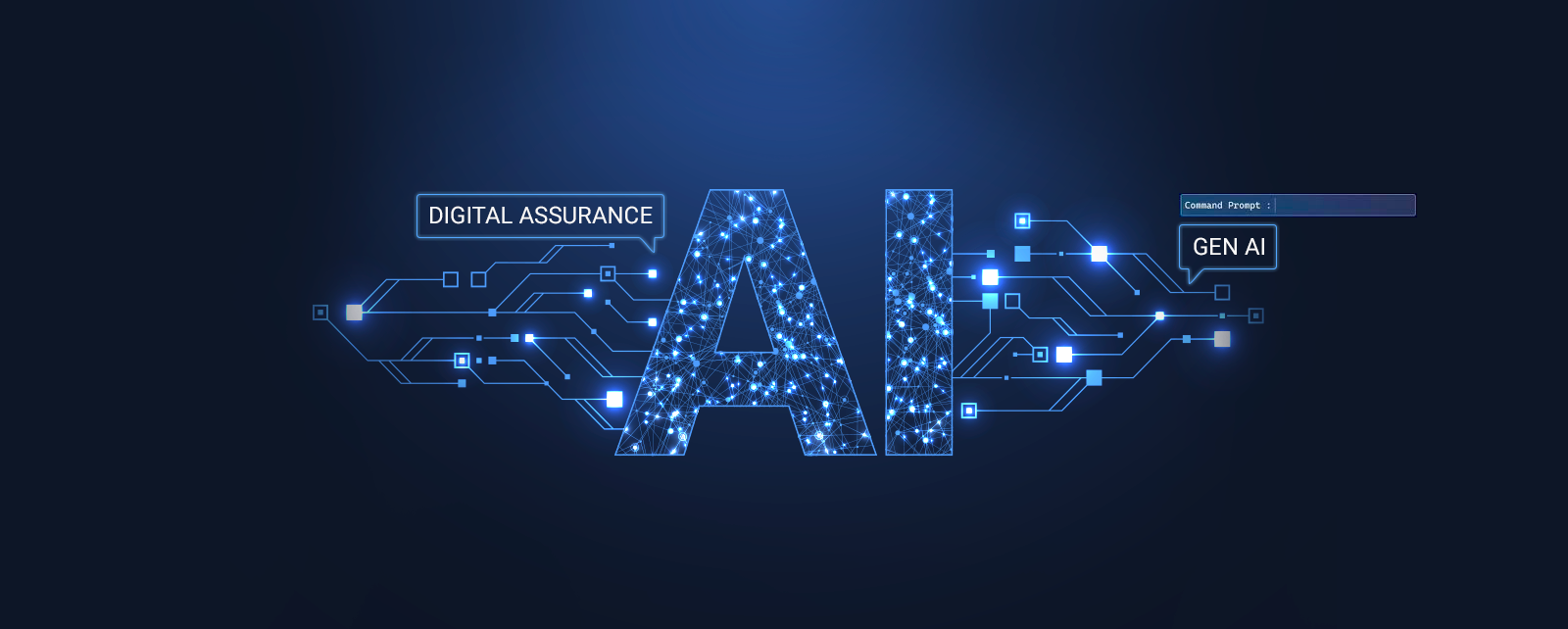
How GEN AI will Impact Digital Assurance?
PWC’s annual report on Artificial Intelligence (AI) states it will be the biggest commercial opportunity, and global GDP will be higher by 14% due to the impact of AI-based applications, resulting in an additional USD 15.7 trillion.
Cut to the emergence of Generative AI (GEN AI) as a viable business tool and the impact will be multiplied, particularly when it is employed in use cases that entail complex and repetitive tasks. Today digital is being spurred by intelligent applications that are designed keeping new human experiences in mind. But these experiences must be tested extensively before they can be rolled into production and digital assurance is a crucial peg in the software development lifecycle.
Digital assurance is the underlying foundation in ensuring that software and systems meet user expectations and perform reliably. The integration of AI, specifically GEN AI, can significantly impact testing processes by transforming the digital assurance journey in terms of enhancing various testing aspects, such as, test data generation, case creation, suite optimization, bug detection, automation and adversarial testing.
Specifically, GenAI will impact Digital assurance in the following ways.
Test Data Generation: GEN AI leverages its generative models to create realistic and diverse test data. This not only saves time but also results in extensive and representative datasets, reducing the manual effort needed for data creation and allowing comprehensive testing by covering a wide range of scenarios.
Test Case Generation: GEN AI can automatically generate test cases based on specified requirements. These models understand system inputs and expected outputs, enabling them to create test cases that encompass various input combinations and edge cases, leading to enhanced test coverage and improved overall quality.
Test Oracles: By using training data and understanding system behavior, GEN AI can predict the correct output for a given input. This capability streamlines the process of automated checking for test results, ensuring they align with expectations.
Test Suite Optimization: GEN AI analyzes existing test suites to identify redundant or overlapping test cases. By assessing coverage and effectiveness, it suggests modifications to enhance overall testing efficiency, ultimately improving the productivity of testing teams.
Bug Detection: GEN AI models excel at analyzing software code and system behavior to pinpoint potential bugs or vulnerabilities. By learning from patterns in code or system execution, these models are instrumental in detecting anomalies or potential issues that might be overlooked in manual testing.
Test Automation: GEN AI can significantly expedite the creation of test scripts or test code. By understanding the system and its expected behavior, these models automatically generate test scripts, reducing the manual effort required to write tests and accelerating the testing process.
Adversarial Testing: GEN AI can simulate adversarial scenarios to assess system robustness. By generating adversarial inputs or attacks, these models assist in identifying vulnerabilities or weaknesses in systems, ultimately enhancing resilience.
GEN AI is an Enabler, not a Replacement
GEN AI has unlocked innovative frontiers in the agile testing with automation and optimization capabilities previously unattainable. By leveraging these advancements, we are empowered to ensure that digital systems are strong, reliable, and capable of delivering exceptional user experiences.
While GEN AI offers numerous advantages in testing, it is essential to recognize that human expertise and manual testing continue to play a pivotal role in areas that require critical thinking, domain knowledge, and complex test scenarios. GEN AI should be a tool that complements and supports human testers rather than entirely replacing them and finding the right balance between AI and humans is the key to achieving scalable Digital Assurance capabilities.


